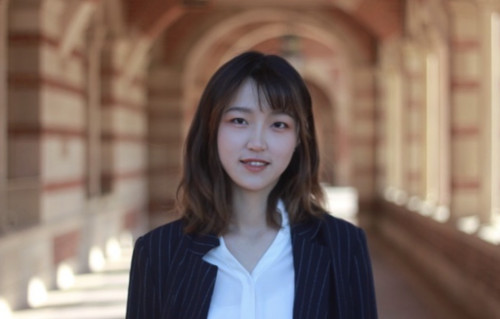New Faculty Focus: Icy Zhang
Icy (Yunyi) Zhang: Assistant professor of learning sciences, Department of Educational Psychology, School of Education
Hometown: Suzhou, China
Educational/professional background: BA in psychology, University of California, Los Angeles; PhD in psychology, University of California, Los Angeles

Icy Zhang
What is your field of research, and how did you get into it? Growing up influenced by my grandparents who are psychologists, I’ve always been fascinated by psychology and human development. However, it was in my high school I started to see how psychological theories can make a practical impact in education. I’ve encountered many mentors who inspired me and filled me with hope for the future of education and science. And I have since aspired to be someone like them.
What attracted you to UW–Madison? I want to work alongside world-class scholars who care about education. The Department of Educational Psychology at UW–Madison is home to like-minded people I want to work with and learn from. Together, we embrace a culture of excellence, committed to improving learning for the next generation.
What was your first visit to campus like? I actually first visited the campus in 2019, during my PhD interview! It was the winter season, when I saw the heaviest snow in my life. I was genuinely impressed by the department. Then, when I visited again during my faculty interview, I enjoyed every conversation I had with faculty and students. I thought to myself – I can see myself thriving here.
Do you feel your work relates in any way to the Wisconsin Idea? If so, please describe how. The Wisconsin Idea echoes deeply within my heart. As an educational psychologist, I see my research to be truly successful when it makes a meaningful impact in the community. I want to not only empower learners in a single intervention or classroom, but stimulate us to think about the long-term impact and changes for all learners.
What’s something interesting about your area of expertise you can share that will make us sound smarter at parties? It sounds crazy that the temperature of the beverage you hand to someone at a party can potentially impact their cognition. However, it is true that our abstract thinking is influenced by our physical interactions in and with the environment. When we apply this idea to teaching and learning, we see that concrete bodily activities have a profound impact on students’ abstract learning, especially for learners who do not have a lot of prior experience in the domain.
Hobbies/other interests: painting, fishing, theater



